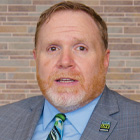
Presented by Jeremy Zeiders, PSL/donor family supports coordinator at Center for Organ Recovery & Education (CORE)
April is National Donate Life Month (NDLM), a month commemorating those who have received transplants, recognizing those who continue to wait, honoring donors and donor families, and thanking registered donors for giving hope.
What is National Donate Life Month (NDLM)?
Established by Donate Life America and partnering organizations in 2003, National Donate Life Month features an entire month of local, regional, and national activities aimed at encouraging Americans to register as organ, tissue, and cornea donors, and to celebrate those that have saved lives through the gift of donation.
Who Can Be a Donor?
People of all ages and medical histories should consider themselves potential deceased donors. Your medical condition at the time of death will determine what organs and tissue can be donated. Living donors should be in good overall physical and mental health and older than 18 years of age. Some medical conditions could prevent an individual from being a living donor. Transplant programs complete a full patient evaluation to protect both the living donor and recipient’s health and safety.
Does Registering as a Donor Change My Patient Care?
Doctors work hard to save every patient’s life. Sometimes there is a complete and irreversible loss of brain function. That patient is declared clinically and legally dead. Only then is donation an option.
This National Donate Life Month, we ask the public to be part of this interconnected, life-sustaining community by registering as an organ, tissue, and cornea donor; and championing the Donate Life cause. Visit core.org/register/ and enter the necessary registration information online. It only takes about a minute.
Continue learning about the gift of organ donation in Part 2 and Part 3.
Please note, the information provided throughout this site is not intended or implied to be a substitute for professional medical advice, diagnosis, or treatment. All content, including text, graphics, images, and video, on or available through this website is for general information purposes only. If you are experiencing related symptoms, please visit your doctor or call 9-1-1 in an emergency.